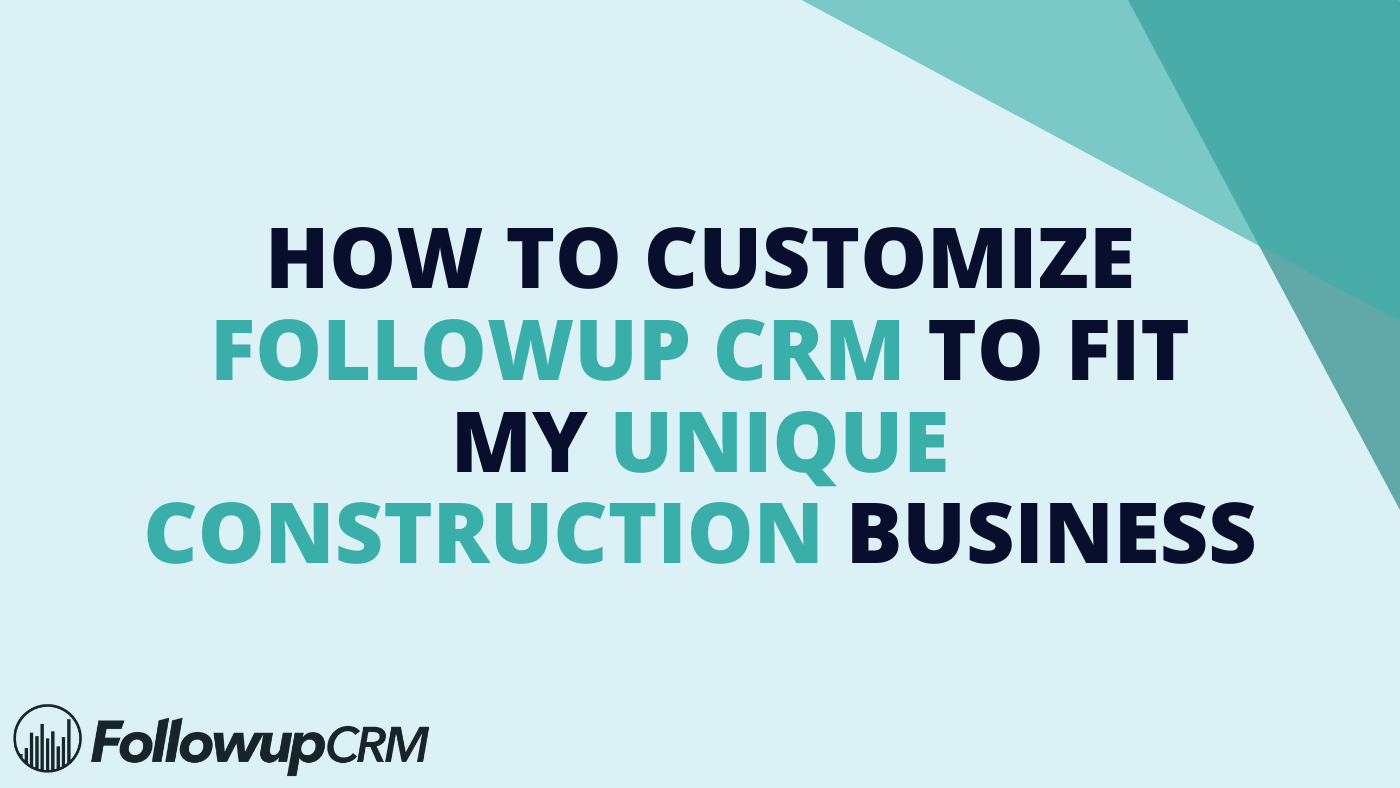Proper CRM implementation is crucial for your construction company’s success. Without proper onboarding, there will be many challenges with adopting to a new system, making it difficult to leverage a CRM to its full potential. There are several reasons why some construction CRM implemenations fail, which we’ll cover in this blog.
The first reason a CRM implementation may fail is from lack of executive management buy-in. Commitment from executive leadership is one of the most important factors when looking for a successful roll out. Without executive support, there is no reason for the company employees to adapt and move forward if it’s not being enforced. A successful CRM implementation requires commitment from everyone, especially those in leadership positions.
The second reason a CRM implementation may fail is because there are no defined goals when it comes to what you’re looking to get out of the system. CRMs can be broad and offer an array of features from sales tools and project management to proposal generators and reporting. By setting measurable objectives and clear results you’re looking to get out of a CRM, you’ll be able to find the right solution for your business. Implementing a CRM without understanding your goals and needs makes it difficult to successfully set up a system.
Another reason why your CRM implementation may fail is from going with the wrong vendor. If you blindly invest in a CRM without understanding your pain points and important features that solve those pain points, you’ll likely have a hard time adapting and getting what you need. It’s important to do your research beforehand, make a list of all your challenges, and find a CRM that address those problems. Implementation will be extremely difficult if you invest in a CRM that doesn’t include the features your company needs to succeed.
The fourth reason a CRM implementation may fail is from not getting users onboarded and trained correctly. When rolling out a CRM, most companies will receive access and expect them to start using the system. It’s nearly impossible to successfully adapt to a new system without hands-on training and proper onboarding. When shopping for a CRM, be sure to invest in a company that has a responsive customer success team that will thoroughly walk you through the onboarding process and hold your hand during set up.
Another reason CRM implementation may fail is from a lack of helpful resources. Getting the answers you need quickly is important when it comes to learning a new system. Be sure to find a CRM that has the tools to do that. Followup CRM offers a support center filled with tons of tutorial articles, a YouTube channel, weekly live training, an Academy, and so much more. Look for resources like this when shopping for a CRM to ensure you get the help you need for a successful onboarding process.
The last reason CRM implementation fails is from a lack of long-term accountability. If CEOs, owners, and sales managers aren’t holding the team accountable, then there’s a good chance the sales team won’t actually use it. One great way to hold your sales team accountable with a CRM is to incorporate the system in your weekly sales meetings. A best practice during your sales meetings is to have your sales or estimating team display their CRM homepage and present their progress to their peers. This is a great way to show your team your progress and get any help you may need to help you reach your quotas – and if salespeople know their pipeline and sales statuses are going to be publicly shared with their team, this will give them that extra push and drive they need to stay on track.
Proper CRM implementation is critical when it comes to creating good work habits and overall success. Follow these tips when investing in a CRM to ensure everyone on your team is on the same page and you can successfully adapt to a new system.
Interested in learning more about how Followup CRM can help you reach your goals? Click here to request a free demo.







